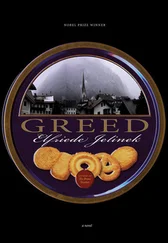What Hans means by this is: if she had been wearing overalls too and not just him. In the flat, Hans finds two mates from the Workers Youth Group, which he is also a member of (whether he wants to be or not), waiting for him. They have posters with them and a bucket of paste which they are stirring. This leaves Hans essentially unstirred. Recently he has taken to changing at work before heading for home. He won't wear anything in the street but trousers and a pullover. At one time he would cycle home wearing his work clothes, but nowadays his muscles are clad in the clothing Sophie has given him. The things have stretched somewhat and are visibly creased in the critical areas, although Hans looks after them very well and is forever shooing his mother off to the ironing board. They lose a little more of their shape every time and adapt to Hans's. Their original owner is now studying in Oxford and will no doubt have bought himself some new things. Where muscles come from and where they go are two quite different things.
Hans's muscles go into electrical current and are absorbed by it wholly, they are transformed into pure energy. Hans often chews a square, snow-white lozenge of dextrose to replace the energy he has used up.
Recently he has practically been living on these lozenges, they are so pure and so regular in shape, like Sophie, and sportsmen advertise them. They are called Dextro Energen. Skiers and tennis-players alike know the uses of Dextro Energen and avail themselves of it.
Hans goes instantly to his closet to take off his good clothes and put them away tidily. Wearing his everyday clothes, even though he will very probably be going out again (wearing his cashmere) in just half an hour, he enters the living room, where his fellow-workers are skulking. These last few weeks, the new company he's been keeping has given him greater assurance in his dealings with people of every race, class and nationality than back when all he knew was his own race and class. These young fellow-workers represent a step back to his former life because they are of his own class and in that class they will remain, you can tell right away, they are incapable of getting anywhere. Mother has made them coffee to warm them up and every one of them has a thickly-spread slice of bread too. Her son gets a slice as well. The youngsters with the bucket have their enthusiasm and their socialism, and Hans has his ambition, which is so strong that you can even swim against the current, you can even fight against heavy electrical current, which is an invisible enemy, Hans will take on anyone who represents an obstacle to his future. Hans puts on a new record so he doesn't have to listen to the old tune about the Communist Party, which is scratched and sounds awful, and furthermore the two of them always say the same thing although they are different people, they have no lives of their own, no individuality. They do not realise that Hans has already quit the long chain of hands passing the bucket of water forwards in the direction of the house that's on fire (which you cannot see, but it must be there because otherwise there wouldn't be a bucket). He has got out and has simply gone away, and the last in line needs a little more energy to bridge the vacant space, but that's all. They declare that the time to join forces with the right people has already been upon them for some time.
One day, once he is mature enough, Hans proposes to join forces with Sophie, in matrimony.
Hans's hands are worn with labour. He has been working since he was fourteen. There is a paste of grime and sweat under his fingernails. The grime and sweat unite to form one substance and so do the body and the mind, a two-in-one unison Hans has been wanting to get to know ever since he got to know Sophie. On Sophie's nails there is not even varnish, they have no need of it, they have nothing to hide nor do they hide it.
Mother knows the parents of these two from a bus trip they took together and wants Hans to get to know them too because they have the kind of sense her son lacks. You have to join a group, one individual cannot achieve anything on his own, only when you're united do you become stronger. Hans says he has already found a group of that kind and is respected there on account of his special abilities, which nobody else respects him for. No one can take his place in the group, he's unique.
I'm irreplaceable at basketball, both as a thrower and as a catcher, but anyone can do my work exactly as I do it, and it's the same in Life. That is just one example of how things are in every branch of Life. Work is an evil and people keep telling me that it is a necessary evil but I could manage without work and Life would be better. All I need is Sophie. If she loves me, I can even do without work.
Having said this, he is all contempt for the wretched extra-thickly-spread margarine slice, margarine again, no wurst, yuck and he hurls at his fellow-workers the proposition that it is the individualist who must achieve his liberation and not the group because a group is unfeeling and anonymous and you disappear in it, never to emerge, unless you are its leader or the group is made to measure, like his own group, which he helped sew together.
All this time, his slice of bread goes uneaten. I give you enough of my money to buy decent butter or wurst. It's high time to become an individual. That is the new-style worker, the modern worker. Though I won't be a worker for much longer. The old-style worker remains a worker for ever. The individual worker requires a lot of space, light, air and sun, where flowers, grasses and trees flourish. Which the aforesaid worker comes to appreciate again, at long last. He neglected all those things during the political struggle. Sport is also writ large by Modern Man.
Mother now makes the cardinal error (one she makes whenever she flies into a rage and can no longer control herself in her behaviour towards her son) of talking about the concentration camp. About the child who was eating an apple and was smashed against the wall till it was dead, whereupon the mother went on eating the apple. About children whose torture consisted in being thrown from the second floor. About the mother who was sent to the gas chamber along with her two-day-old child because she had begged the doctor to be allowed to give birth to the child. The doctor gave his permission. A great many friends of your father's and mine, of both sexes, were beheaded at the district court, too. I think of them constantly.
Hans exaggerates a yawn. He's heard it all, frequently, and his opinion is that times have changed and people too. People have other things to worry about now. Particularly young people, to whom the future belongs, which after all they are helping to fashion.
His two mates with slush in their heads are stirring the contents of the bucket, ill at ease, so that the paste will stay gummy and not go hard. For which the paste has to have warmth, which is not available outside but in the cosiness of a kitchen range, which is where it is right now. They do not know which side to approach this Hans from, he makes such a self-confident impression, plainly the others have already appropriated him and harnessed him to their own purposes. Outside a cold wind is lashing cold rain along the streets, the trees are bending over into wet loops. This is the violence of Nature. Countless invisible hands, from the workers' movement, are reaching out to the two young lads with the bucket of paste, pushing them forward to put their arguments to Hans. And some of them are in fact issuing from their mouths now. But he does not pay any attention to them. He only listens to the voice within himself that says you have to go to the roots of existence in order to understand yourself, and only then can you understand others. If you imagine you can do anything for others without first having grasped your own natures, you're deluding yourself. That's absolutely essential. Sometimes you may do things that even appear nonsensical at first glance, but they're not, because they're terrifically important for you. My new friend's name is Rainer and he's in better shape than this dump. Which isn't true, objectively speaking. The Witkowski's flat is in an extremely shabby state. But this bedazzled young man does not see that. Who is this Rainer, asks Mother. Which she has already asked once before. But she's forgotten. His father was in the SS, replies Hans, now he's a pensioner and a porter. His kids go to grammar school with Sophie and I'm going to go to technical college some day. You wanted to be a gym teacher the other day. Not any more, I definitely want to make a bigger success of things.
Читать дальше












